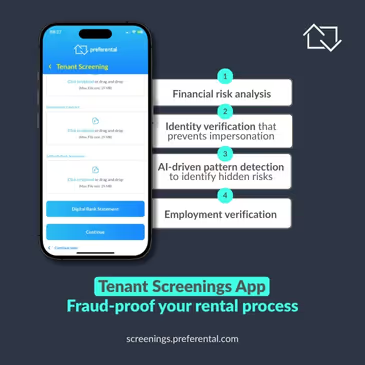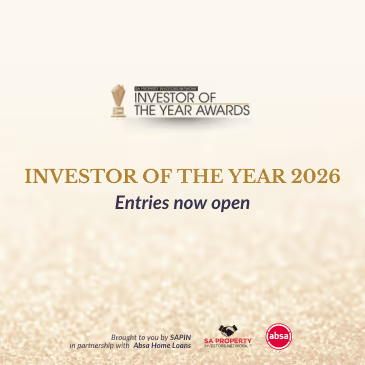AI Is revolutionising Commercial Property Management - Fast
- Smarter Operations: AI automates maintenance, escalates issues instantly, and improves tenant communication, reducing delays and boosting satisfaction.
- Cost & Risk Control: Real-time data insights help landlords cut costs, predict faults, and optimise building performance across portfolios.
- Competitive Advantage: Early AI adopters win on service quality, tenant retention, and sustainability outcomes, setting new property management benchmarks.
Artificial intelligence is overhauling commercial property management – cutting costs, pre-empting problems, and giving forward-thinking operators a powerful edge.
What does a commercial property manager do? It’s not glamorous work. You won’t see them advertising on billboards or boasting on LinkedIn about their latest deal. But behind the scenes, they’re the ones keeping buildings functional and clients happy, juggling maintenance, dealing with contractors, managing tenants, ensuring compliance, and protecting the long-term value of the asset.
Yet, much of the sector still runs on outdated tools, riddled with spreadsheets, manual processes, and disconnected systems that stall decision-making, obscure real-time data, and make portfolio oversight overly complex.
The result? Complaints about a leaking pipe, a broken lift, or a lost access card become buried in email chains, misrouted calls, forgotten by overworked staff, or escalated too late to avoid angering tenants and damaging reputations.
Where AI delivers
Fortunately, that’s already started to change, as a new wave of operators integrates AI to run smarter, faster, and more responsive portfolios. The results speak for themselves: improved tenant experience, tighter cost control, and stronger portfolio performance.
At a commercial office park in Johannesburg under our management, for example, AI has already taken over the admin grind. Instead of chasing paper trails, property teams now rely on automated systems to handle maintenance requests, send levy statements, and escalate unresolved issues. Tenants get levy statements via WhatsApp. Urgent repairs are flagged and escalated instantly. Maintenance tickets don’t sit in email trails; they’re logged and actioned in real time.
The result: quicker turnarounds, fewer delays, and happier tenants. Importantly, AI hasn’t replaced human expertise, it’s enhanced it. With less time wasted on routine tasks, property teams at the office park can focus on what matters: building and maintaining relationships, staying compliant, and driving asset performance.
Instead of scaling headcount to match portfolio growth, this approach uses smart systems to do more with less, allowing landlords to improve occupancy rates, extend lease terms, and lower operational costs.
Tenants benefit from faster resolutions and better communication. And outsourced asset managers gain real-time visibility and insights to reduce risk and optimise performance.
Better buildings, better business
With most commercial stock built 30 to 40 years ago, building systems aren’t always equipped for modern demands. AI helps bridge that gap, by predicting faults to reduce downtime, identifying inefficiencies, and optimising HVAC performance to maintain a comfortable, healthy, and energy-efficient indoor environment. Which, in turn, improves the portfolio’s bottom line. In fact, McKinsey estimates AI could reduce energy spend and emissions by 10–20% across commercial real estate (CRE) portfolios.
But the real value lies in how this tech changes behaviour. Landlords aren’t just cutting costs, they’re seeing lease renewals, boosting occupancy, and delivering a more competitive tenant experience. Asset managers are making sharper decisions based on real-time insights, not outdated reports.
And, while intelligent operations are currently providing a competitive edge, a recent Building Engines/BOMA survey found nearly all CRE professionals plan to maintain or increase investment in AI and sustainability technology, suggesting it’s moving towards a requirement in commercial property portfolios.
Setting a new benchmark
Large property management firms have dominated the commercial space for decades. But scale hasn’t always equated great service, so tenants feel like just a number, and landlords are stuck with slow, inflexible processes.
Property managers with a hands-on, tech-enabled model are flipping that script, by combining intelligent systems with sharp operational execution. They’re proving that you don’t need more headcount to scale, but rather better systems, tighter oversight, and faster feedback loops.
With landlords under pressure to control costs, retain hybrid-working tenants, and demonstrate meaningful sustainability outcomes, old ways of working are no longer cutting it. Those slow to adopt AI risk falling behind competitors offering faster, smarter service more cost-effectively. In a market where delayed repairs or compliance failures can kill deals, efficiency is everything.
The future of property management won’t be defined by who has the most buildings. It’ll be defined by who manages them best. Ultimately, AI is not just a tool, but a platform for a smarter, resilient commercial property future. Those who adopt the tech today are already leading the next wave in real estate management.
Jonathan Kohler is CEO and founder, Landsdowne Property Group













.avif)


.avif)

.avif)




.svg)





























.avif)
